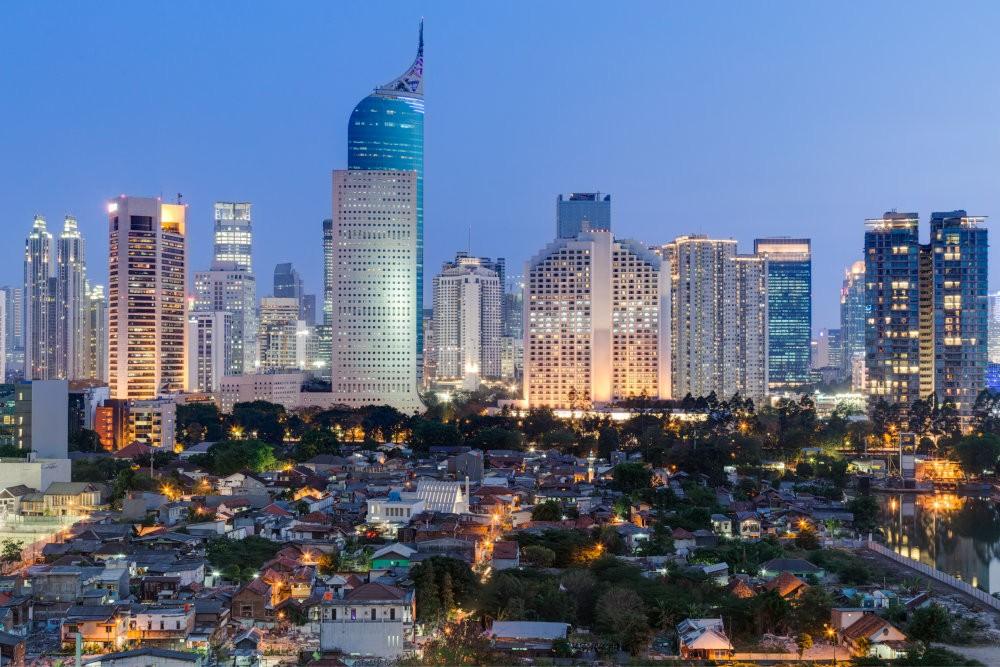AA International Indonesia (AAI), a Jakarta-based medical, travel, insurance and roadside assistance company that Michael Marquardt has helped successfully lead and grow, will be celebrating its 10th anniversary in business this month. Marquardt has seen the Indonesian market grow, evolve and emerge as THE alternative international trade and investment opportunity platform for companies in the United States and Europe seeking to expand their operations overseas. In this article, he shares his perspectives on the Indonesian market as a foreign national, and how other foreign business entities and executives can help the growth of their own local business enterprises.
My experience of doing business in Indonesia for more than a decade, and falling in love with the country, its people and its culture, have been highlights for me personally and professionally as a business entrepreneur. I work with such a talented team at AAI, and it has been a pleasure leading them as well as learning from them about the recipes for success in Indonesia.
When I joined the board of AAI’s parent company in Malaysia 10 years ago, we saw the great potential of an Indonesia that was becoming a huge emerging market, but it was not easy sailing at first. Along with my Malaysian business partners, we had to recruit a CEO and management team and start our Indonesian operations from scratch. We experienced some early missteps, for sure. It was tough getting the business off the ground. But after 5 years of establishing the operation, we finally hit the right mix of products and pricing and the business really took off. Almost two years ago, in early 2016, I directly began to oversee our Indonesian operations.
Business Success in Indonesia
Similar to AAI, there have been many examples of companies achieving business success in Indonesia including such large Western corporations as P&G, GE, Chubb, Apple, LVMH, Nike and BMW. The country offers many advantages to organizations seeking to set up shop there. The most obvious is a visibly booming economy: the capital, Jakarta, is a thriving metropolis. The country’s infrastructure also has vastly improved over the past few years. The new president of Indonesia is pro-business. The instances of having to pay bribes to airport officials upon entering the country are now a thing of the past. The new, modern Jakarta airport terminal constructed over the past few years makes the Philadelphia airport look like a museum! While traffic snarls are still common and widespread, a new massive rapid transit system will start to go live in 2019 and will significantly alleviate heavy vehicle traffic congestion.
Each time I visit Indonesia I find new surprises in how far it has modernized. It is amazing how fast a country with a population almost as large as the United States can progress so quickly. I’m also astounded by how fast Indonesia, a still emerging economy with some still lingering third-world aspects that are changing, has been embracing new digital technology. For instance, almost everyone in the country has a smart phone and you can hail a motor scooter to drive you through traffic (use UberMOTOR or Go-Jek, the extremely successful local version of Uber). You can also have just about anything delivered to your office or home without much of a wait. The telecommunications infrastructure has advanced tremendously in recent years, and you can easily travel to other countries in the Asia Pacific region from Indonesia. Power outages also seem to be a thing of the past, at least in metropolitan Jakarta or other large West Javan cities like Bandung.
Indonesia is a huge market of more than 250 million people, and its economy is growing very fast. It is at the same time the world’s largest Muslim country and a large melting pot of religions and cultures that largely have figured out how to live harmoniously with each other. United States technology and culture are respected and looked up to, and Indonesians largely yearn for Western brands, which are status symbols to them. The rise of the giant middle class there has made this a winning recipe, especially with regard to consumer goods and insurance products.
Indonesia has a warm-hearted, respectful, and welcoming culture, full of smiling faces and gratitude for your visit. (Senang bertemu dengan Anda is Indonesian for “pleased to meet you.”)
Indonesians are very well informed about American culture and ask great questions that are fueled by their genuine curiosity. One wonderful cultural practice that I enjoy is the pomp and circumstance of sending giant flowered bouquets to people’s offices on important anniversaries and such.
One of the best investment opportunities for foreign companies in Indonesia is in the insurance and financial sector as well as in infrastructure development. While there is of course still much work to be done and many challenges remain, investors and companies considering entry into Indonesia should be encouraged by the fact that effective government leaders are making a big impact on a large emerging market country, often not the case with other countries in the region. But there is no magic bullet or secret formula for successfully doing business in Indonesia and companies need to be patient and focus on building good relationships with local government and business sector leaders. Traveling to Indonesia for almost ten years now on a regular basis (four or five times a year) has offered me the opportunity to build a large network of influential individuals throughout the Asia Pacific region — providing me with a lot of “street credit” and local knowledge.
A Relationships-focused Culture
I tell my clients to really get to know the players, both in the business community and in government. A senior executive in a small local Indonesian insurance company one year may be the CEO of the Hong Kong operations of Chubb the next year. As is the case anywhere you do business around the globe, good networks are essential to success. In Indonesia, part of the networking and relationships-focused culture is that people do each other favors and that you must earn trust or have someone else “bestow” it on you. With the country’s embrace of technology, business is now done there in almost complete transparency. Expect that you and your company will be researched before any meeting, which was not the case even 5 years ago. For example, now, when I go into a meeting and sit down with someone that I have never met, they will tell me that we have 17 shared connections on LinkedIn. We will then spend a good portion of that meeting just talking about those common friends or colleagues. It is critical to connect with your Indonesian business counterparts in ways like this to establish successful business relationships in the country.
As in the US, if you are expanding your business from, say, the Atlanta area to the Philadelphia area and someone engages you in conversation, it makes a good impression if you can rattle off that you met Ed Rendell when he was mayor of Philadelphia and have an opinion on how he did as Governor of Pennsylvania. If names like that are not even familiar to you, your credibility sinks a bit. This is similarly true in Indonesia. As an American, you gain major credibility when names of local government and business leaders roll off your tongue and you can show someone a picture with someone important from, say, 5 years ago.
Again, foreign companies really need to spend the time learning about the culture and embracing it. While Indonesians are quickly acquiring U.S. and Western tastes and preferences, one should not assume that what your American clients or customers love and want is the same as what your Indonesian clients are attracted to. It is also critically important to get solid legal advice on how to set up your company structure and board composition, and how to avail of tax-advantageous entities to hold intellectual property in the country.
As a foreign business looking for prospective investments in the Indonesian market, do not overlook potential joint venture partnerships with Indonesian businesses as it’s often very challenging for an Indonesian company to find a footing in Europe or the U.S. and such partnerships are highly valued. While it is difficult or impossible for bigger Indonesian companies in such sectors as natural resources (palm oil, mining, etc.) or financial services to expand outside the country, the entrepreneurial sector is thriving in Indonesia. I fully expect the first of those players to expand outside the country – first into nearby places like Malaysia and Singapore, and then beyond.
I believe Indonesia will be one of the fastest growing large countries in the world over the next five to ten years. The Trans-Pacific Partnership (TPP), which the U.S.is unfortunately no longer a member of, will help Indonesia in many ways as it continues to open its domestic market to outside investors and increases exports from the country across the region. That’s an economic growth engine that no foreign company or investor can afford not to jump onto!





